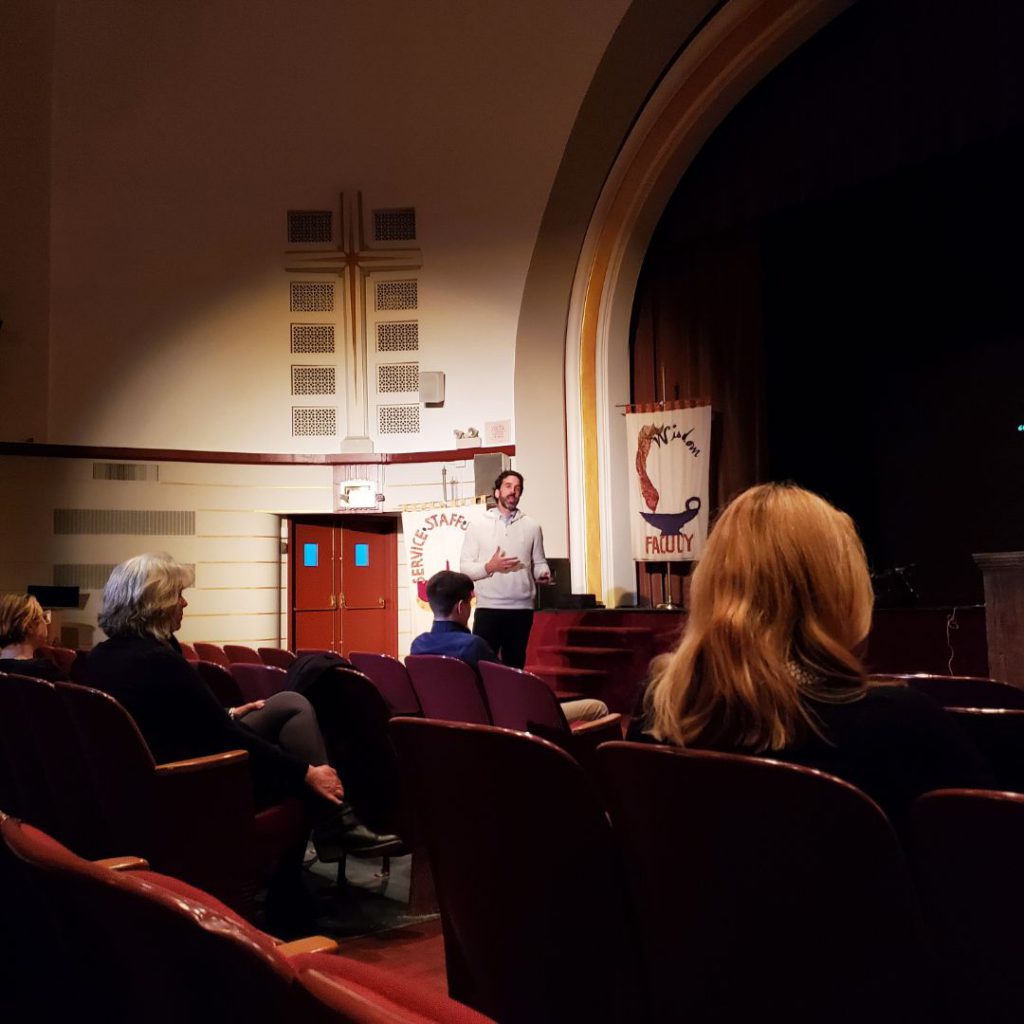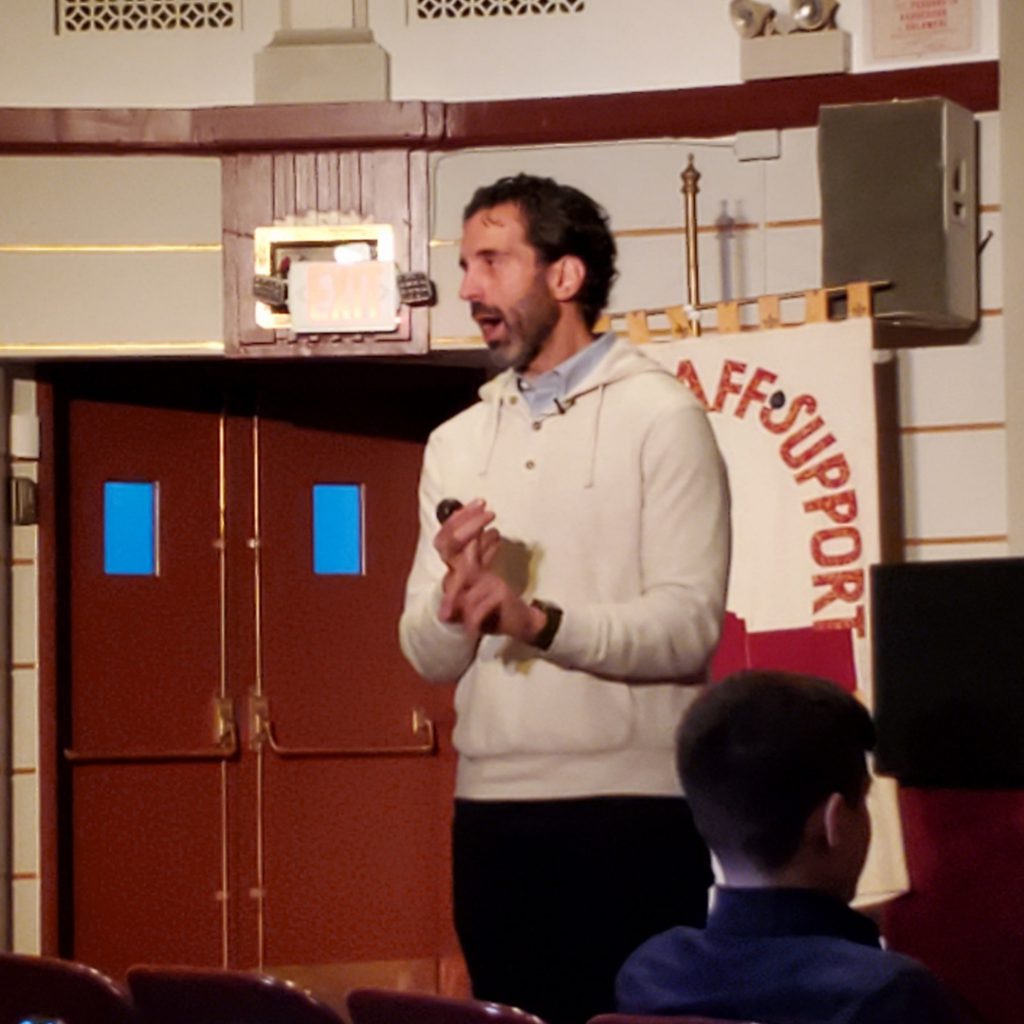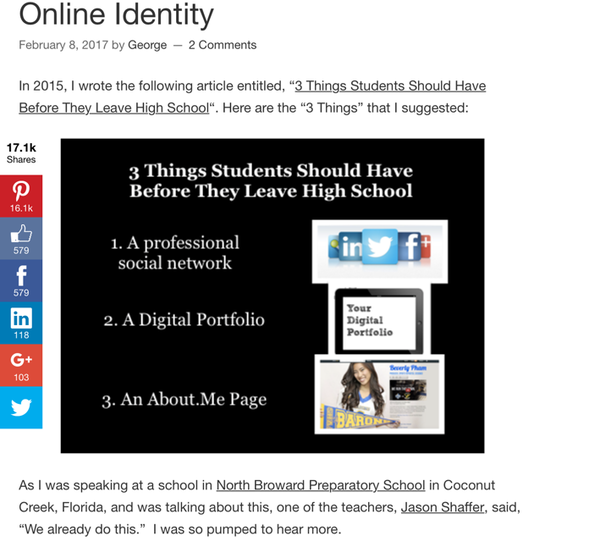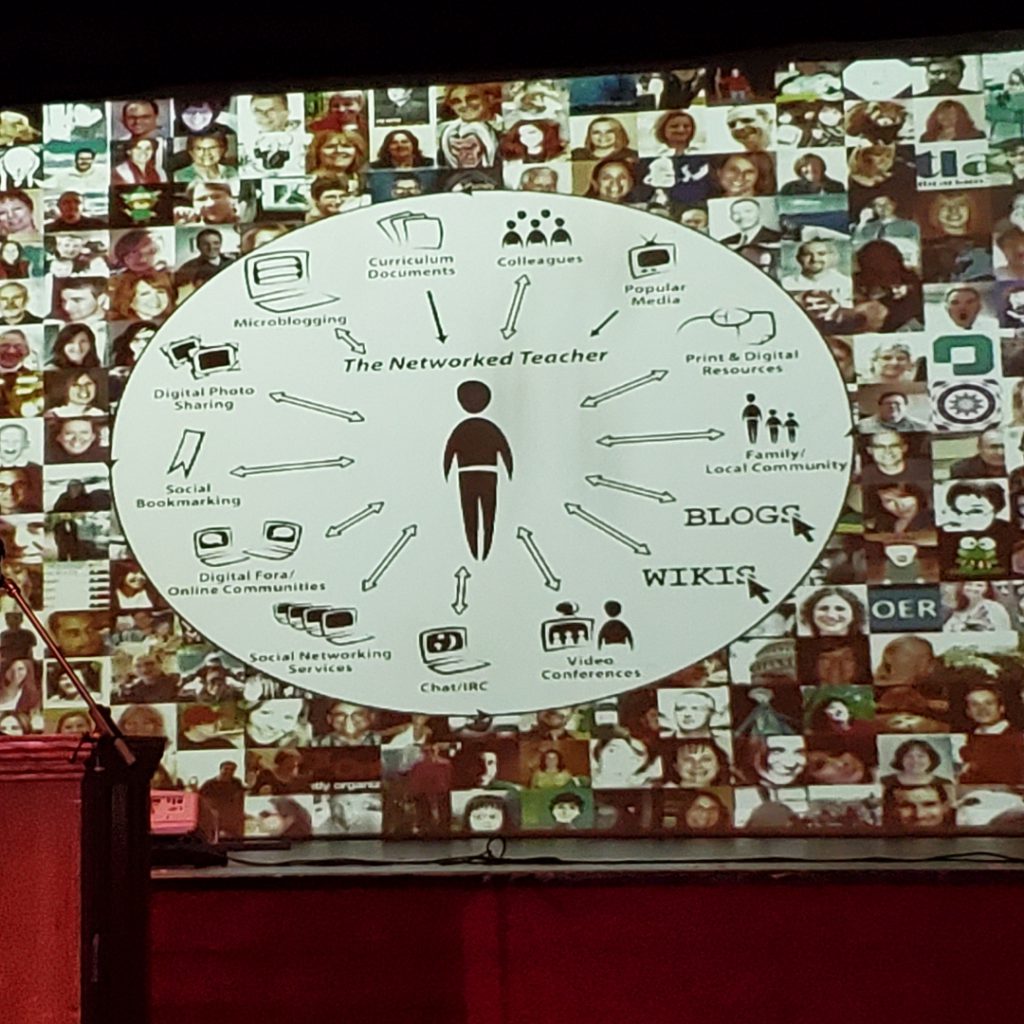Hits: 120

WHITE PLAINS PIONEER of INNOVATIVE TECHNOLOGY IN EDUCATION — THE STEPINAC HIGH SCHOOL CELEBRATES 75TH ANNIVERSARY BY FORGING FACULTY MISSION OF THE FUTURE
WPCNR SCHOOL DAYS. By John F. Bailey. January 11, 2023:
George Couros author of the acclaimed The Innovators Mindset held 70 Stepinac Faculty members listening intently through his highly personal stories of his past as educator and administrator grabbing seasoned teachers’ collective attention instantly and holding it nonstop.

Starting his talk from the floor in the midst of the audience, not from the podium he commanded the seasoned professionals by putting himself on their level in conversation serious banter with direction that did not bore for a second. WPCNR PHOTO
His style was strategic rambling that you followed nodded and were lead along impressed as he built block by block belief in his philosophy by concrete example. He was talk show host impressive that made education sound like the most rewarding career you can do in life.
This was the most exciting 90 minutes I have listened to in years.
Every minute inspired and came to life by his relating real life success stories from students, learners, teachers he has met around the country. He showed the Stepinac faculty how to engage every student, unlock their potential, establish a trusting relationship with every student Wednesday morning.
Drawing often from his own family, and what his parents (Greek immigrants and restauranteurs), he painted a picture of the difficulty of teaching if the student does not believe you care about her/him.
He started off saying he was speaking down in front because “I learn from you as well, because I have no idea what’s going on in the classes… There must be a balance between what you want for your child and what they are interested in.”
He suggested that the way he relates is by telling stories to illustrate a point. Showing pictures of his children and how they related to him in a series of personal videos he demonstrated the human interaction in the first years childhood that builds the trust and knowledge of the new child in you the parent. These were touching videos that drove home the point, as I saw it, that without a relationship that the child recognizes you really care about them, the building infrastructure is not there.
This foundation at home, he brought to his experience teaching Kindergarten. Mr. Couros said the home atmosphere has to be recreated in the classroom, “it starts in the family on strengths and in school if those strengths are recognized by their teacher(s) they are contributing to the success of the class and the school as a whole.”
He told amusing story about his first job as Principal. He was asked to have his picture taken for the wall of all the Principals of the school. He refused. He said the Principals are not what is important in the school, it is the kids. He suggested putting pictures of every child in the school alternating each week. Well management said no, the principals is a tradition. (This also brought a knowing laughter across the hall.)
Couros belives to make the child enthusiastic in class the teacher has to find out what they are really excited about and encourage it. “The innovative teacher may skip what they are usually doing to ask participation from all others.”
He introduced the concept of “co-creating” with the community using the example what happens to the class if someone “does not show up,” to show how the class dynamic is hurt.
He used his father’s restaurant as an example. He remembered his parents who ran the restaurant for 35 years as always greeting customers and being attentive to them. He said the customer (the child in your class) is so important in education because “without customers there is no restaurant.”
He shared an Ohio State study what showed that “Building relationships makes teaching better. “Social Capital” is three times more effective in improved performance than financial investment in improving math and reading scores.”
“The child that knows you know who they are, they think different.(about you as the teacher).
He said technology is not helpful for technology sake, “Technology can be more than a tool. Technology in the hands of a great teacher can be transformative!”
He showed astounding stories of innovations by teens who through their freeform thinking created an energy making device using sun wind and water, and another who explained a complicated biological process with a simple diagram.
He said he believed in turning our children into “Empathetic Problem Solvers.”
Mr. Couros says you get the most out of students by turning them loose on a problem, and more to the point, involving students to approach how to solve a problem collectively as a team, or identify a problem are just some of the talents every child has. (Congress should invite Mr. Couros to the Capitol and give them this presentation.)
Couros left no stone unturned.
He asked the rhetorical question, are we preparing our kids well for the future after school? No, we are not. Laughter filled the Major Bowes Auditorium when Mr. Couros asked the faculty, “Would you like to spend the whole day being in your classroom?”
He reminded all that learning was not a straight line but a very crooked wandering path with reversals and hard work, that children had to understand.

The highlight of the talk was his suggestion that when students leave school they should have “Leverage Networks that are accessible by their first and last name by Google so they can show case themselves to any firm, school or organization across the country. This was a revelation to me. I said that’s a great idea in my head. He was not talking about the frivolity that marks personal websites today. He was talking nuts and buts solid achievements packaging their awareness of what corporations, institutions and non-profits are looking for—writers, video experts, programmers, math savants, communicators and old-fashioned work ethic.
Mr. Couros, Adjunct Professor with the Graduate School of Education at the University of Pennsylvania, began the keynote day and is currently spending the day visiting classes, leading discussions, and workshops today.
Frank Portanova, Stepinac Class of 1993, Vice Principal for Academics and Curriculum brought Mr. Couros to Stepinac because “We are excited to welcome Mr. Couros, a globally recognized educator to our professional development program, who will inspire our faculty to take Stepinac’s commitment to create an innovation mindset of our students to the next level.”
I’ve been a reporter listening to speakers to the public for 23 years. I have never heard a talk like Mr. Couros gave today that was so timely, candid, and relevant to anyone making opinions or decisions about how to educate our children going forward. Filled with facts. Filled with solutions to common educational problems.

